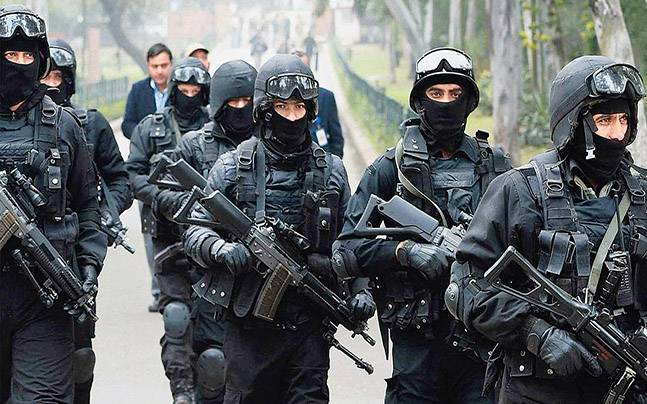Giving a massive boost to India’s defence capabilities, India is set to have Defence Cyber Agency (DCA) by next month. This agency will be headquartered in the capital. Senior navy officer rear Admiral Mohit Gupta will be the first head of Defence Cyber Agency (DCA).
“We are working to raise the Defence Cyber Agency in May itself. The work has almost been completed. A new building has been hired in the national capital which will act as the headquarters of the formation,” sources in the Defence Ministry said.
India over the past few years has been seeing an exponential rate of growth in terms of internet penetration. With data prices lowest in the world with 1GB costing just Rs 18.5 (USD 0.26) as compared to global average of about Rs 600 coupled with cheap electronic infrastructure this trend is sure to continue.
India is also striding ahead to use this ‘digital resource’ to its benefit, with policies aimed to provide government services over the Internet. According to data released by United Nations in UN E-Government Survey, India has jumped from a rank of 125 in 2012 to 96 in 2019, on the E-Government Development Index which presents the state of E-Government Development of the United Nations Member States. Moreover according to the same survey which also publishes the e-participation index (EPI), India has jumped from the rank of 75 in 2012 to 15 in 2018 with a very high E participation score of 0.9551.
Estimates show that by 2020 India would have a whopping 730 million users with 75 % of new users emerging from rural areas and these users would be accessing services from banking to travel over this digital space. Not limited to Government to citizens systems, Private entities to customers, government to government and citizen to citizen networks will also form a major part of this Digital revolution.
With major operations of the Government from control the of power grids to critical defence infrastructure from financial services to nuclear power stations , failure of this system can not only lead to total shutdown but might also result in deaths of thousands of citizens.
This indispensable nature of Cyber Space in day to day operations makes it an attractive target for Cyber intrusion and attacks. With intent of cyber attacks ranging from stealing of identity of users to usage as weapon of war, Defence against these cyber attacks is critical for the national security.
Cyberspace has inherent vulnerabilities that cannot be removed, with innumerable entry points, nation states, non-state actors, and individuals are at a peer level, all capable of waging attacks. According to Cyber Security firm Symentec , India is ranked third in the list of countries where the highest number of cyber threats were detected, and second in terms of targeted attacks in 2017.
India with its hostile neighbors faces a high risk of state-sponsored Cyber attacks which can be used as an instrument of warfare. China has been accused by various international organizations of orchestrating cyber attacks aimed at steeling sensitive information. “The relatively higher number of inbound attacks on Indian honeypots reflects how the fast-digitising country is becoming more lucrative for global cyber criminals,” Leszek Tasiemski, Vice President of cyber security products R&D at F-Secure, said in a statement. A honeypot is a network-attached system set up as a decoy to lure cyber attackers and to detect, deflect or study hacking attempts in order to gain unauthorized access to information systems.
In the recent years, China has upped the ante in the cyber warfare against India and other countries. It is all too well known by now that China has been openly engaging in cyber war against the US and India on a regular basis. In May 2008, Chinese hackers allegedly broke into the Indian Ministry of External Affairs’ internal communication network. Subsequently, the Belgian Government warned that e-mail attacks, aimed at compromising government computers, appeared to be coming from China. Pakistan with its limited capabilities has also made several failed attempts.
India’s Defence Cyber Agency (DCA) is set to provide coherence to the entire efforts for developing innovative future technologies to protect Indian networks. India efforts in this direction only reiterate India’s commitment towards being a responsible member of the international community and a proactive partner in addressing this critical issue which impacts more than a billion people. However human resource development in this field still remains a challenge.
